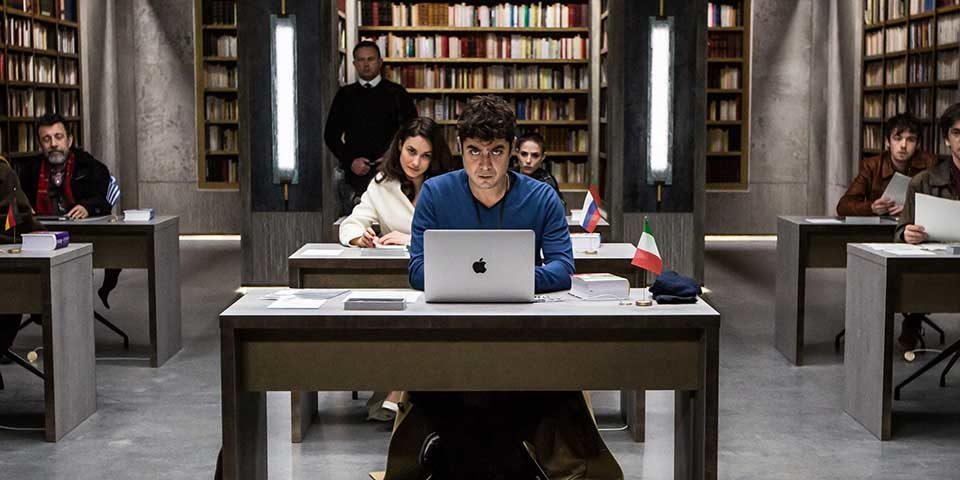Rating: ***
I imagine the first time French director Régis Roinsard did his elevator pitch for The Translators, he sold the project before the doors were even open. It’s compelling stuff right from the premise: a group of translators from different nationalities locked in a secured French chateau to translate the last book of the biggest bestseller in the world. But then a mysterious hacker threatens to leak the manuscript and suspicion turns to the only people who could’ve read it.
Everyone has a motive to be the blackmailer but no one seems to have the means to do it. See? It’s terrific. A whodunnit without a murder, an investigation without a detective; just nine people of different nationalities accusing each other of a crime they don’t seem to understand.
Nine people from different European nationalities, all reading a French book, could be the start of a deeper metaphor about the fragility and fractioning of the European Union. There’s a Portuguese lady (Maria Leite) who needs two jobs to survive, a Greek socialist (Manolis Mavromatakis) who partakes in a capitalist adventure to survive, the Danish mother (Sidse Babett Knudsen) who accuses the Greek of not paying the taxes, the Russian (Olga Kurylenko) who is a little bit outside the rest of the group, the young British rebel (Alex Lawther) who doesn’t follow the rules. You get the picture. It’s fertile ground to explore an uglier side of the union.
However, Roinsard has no interest padding his story with layers of politics and international relations. After a long introduction to the setting and its characters, he zeroes in only on the essentials of the plot and everything else is white noise. That becomes both its strength and downfall.
The frame of the narrative is a conversation the publisher Eric Angstrom (a viciously evil Lambert Wilson) is having with the mysterious culprit in jail several months later. It’s a clever ploy from Roinsard to make up for the lack of investigator/point-of-view of the audience. We see only what those two characters are discussing (for they already know what happened), which leaves the audience collecting up the pieces and second-guessing what’s a red herring and what’s not. And, credit where it’s due, it makes up for good enthralling storytelling. The Translators is nothing but entertaining.
It’s almost admirable how stripping down the story to its basics, at the expense of character development and thematic depth, plays to the film’s advantage. The second half starts the unravelling of the mystery, and the many twists it brings include a terrific heist sequence, setting an unexpected tone I couldn’t foresee from the start. This all hides the poor characterisations and the hackneyed dialogue, especially when some of the actors, like the Spanish Eduardo Noriega and the Italian Riccardo Scamarcio, themselves superstars in their own countries, are left with little to match their experience.
Roinsard is a reliable filmmaker. His first film Populaire is a stylistic rom-com set in the 1950s that is as charming as it is gentle. Someone who’s not paying attention may say this sophomore picture is a big change but in reality, it makes perfect sense. Roinsard aims to please. I just wish he had aimed a little bit higher.




